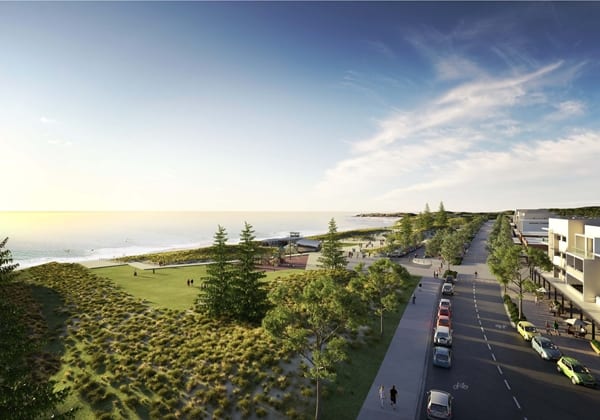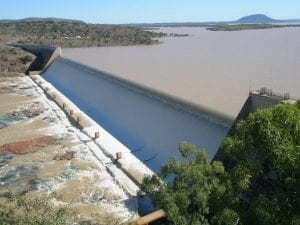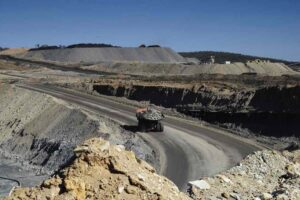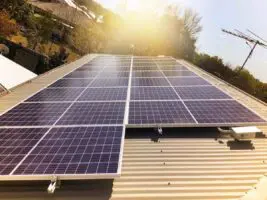Development groups Lend Lease and LandCorp are to pioneer a major community-level battery storage pilot that could change the way that residential communities source energy, including not being connected to the grid.
The pilot project at Alkimos Beach, a sustainable community develop in the northern suburbs of Perth, will include 1.1MWh of lithium ion battery storage that will service more than 100 homes with rooftop solar panels.
The trial will also test different tariff options and retail models and services, energy efficiency devices, gas-boosted solar hot water, and an education program.
The four-year $6.7 million trial at Alkimos is being party funded by the Australian Renewable Energy Agency and local energy utility Synergy. It is expected to start in 2016.
ARENA CEO Ivor Frischknecht said cost effective energy storage will become increasingly important in the quest to include more renewables in our electricity grids.
“Working with these companies presents an opportunity to increase the use of solar PV in Australia, particularly if they adopt similar models at other residential developments,” he said.
It is part of a broader move to incorporate battery storage into communities. In South Australia, project developers and even the state government are openly talking about the possibilities that new developments will not be connected to the electricity grid, using local renewables and storage instead.
In New York, this week, Glenwood, a builder of luxury rental properties in Manhattan, said it will deploy the first megawatt of distributed energy storage systems across a select group of buildings in its New York City real estate portfolio.
Alkimos Beach is a master-planned suburb that is billed as an “environmentall conscious sustainable community. Every home receives an “Energy Smart Home package” and every home has solar panels – albeit just 1kW for many of them. The developers say the smart home package will reduce energy costs by 50 per cent.
This week, the first 240 hectare stage of the 710 hectare development became the first community development to gain a 6-star rating from the Green Building Council. The project site will eventually host 3.6 hectares of playing fields, six hectares of conservation reserves and 41 hectares of dune and foreshore reserves.
All homes will be within 800 metres of both the local centre and transport links. Thirty per cent of the site will be reserved for open space; no home will be more than 200 metres from a park, and walking and cycle paths will link the beach, the town centre and the train station. WiFi will be provided in major public spaces to foster economic and social opportunities.
“This is a real coup for Alkimos Beach and we’re proud to be part of a trial that could help change the way energy is delivered to communities internationally,” said Tarun Gupta, the head of the Lend Lease property business in Australia.
ARENA’s Frischknecht said residential electricity storage would allow network operators to manage demand more effectively by delivering stored power into the grid at peak times.
“Combining storage and renewables has the potential to deliver significant savings to both consumers and developers by reducing grid connection costs for new homes,” Mr Frischknecht said.
“The valuable technical and commercial insights gained from this project could help overcome regulatory barriers and prove the case for adding renewables into the residential planning process.
LandCorp said the learnings from the trial could be replicated across the state and benefit “potentially all Western Australians”.
Energy Minister Mike Nahan said the trial could set new standards in future infrastructure design, management of peak demand, help consumers save money and drive long-term behavioural shift in energy use.
Energy storage technology is the next innovation in energy markets and will affect the design and operation of future energy infrastructure in new communities,” Dr Nahan said.










